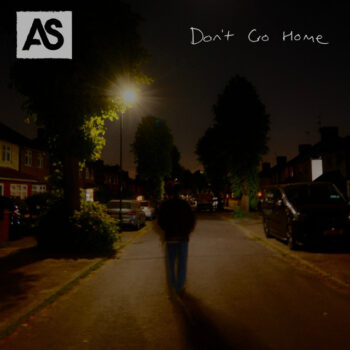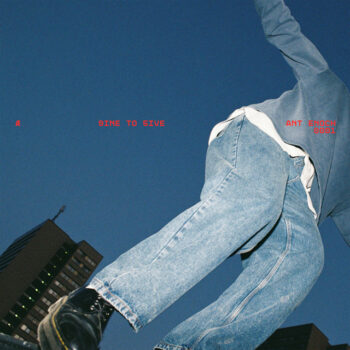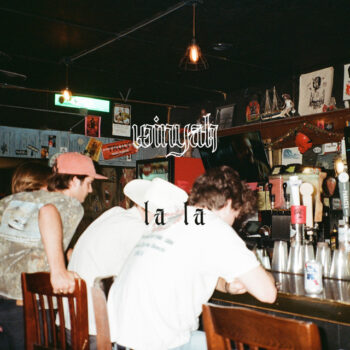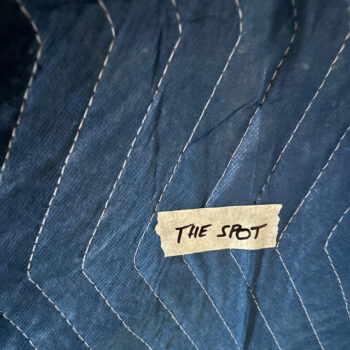Atwood Journal is worked up to share our Editor’s Picks column, written and curated by Editor-in-Chief Mitch Mosk. Each week, Mitch will share a set of songs, albums, and artists who’ve caught his ears, eyes, and coronary heart. There’s a lot unbelievable music on the market simply ready to be heard, and all it takes from us is an open thoughts and a willingness to hear. By means of our Editor’s Picks, we hope to shine a lightweight on our personal music discoveries and showcase a various array of latest and up to date releases.
This week’s Editor’s Picks options Asha Banks, Ashley Singh, ANT ENOCH, Winyah, The Sophs, and Perren!
 observe EDITOR’S PICKS on Spotify
observe EDITOR’S PICKS on Spotify 
“I simply wanna get out of my head, get into my coronary heart, get into your mattress.” From the very first line, Asha Banks lays her soul naked, turning want into poetry – uncooked, radiant, and unguarded, inviting us right into a world the place longing and honesty blur into one breathtaking confession. Some songs really feel like they had been written within the quiet corners of a diary, whispered in secret and by no means meant to be heard – and but “Rerun” invitations us in utterly. Asha Banks opens the door to her interior sanctum on this beautiful, soul-baring serenade, her voice hovering near the mic like a confession. She aches in actual time, her phrases trembling between longing and restraint as acoustic guitars, banjos, and mushy drums bloom round her in a gradual, breathtaking swell. What begins as a quiet flicker of emotion quickly bursts into full technicolor – a wondrous, heat, and achingly intimate reverie that leaves you smiling by way of the ache.
Again to sq. one,
break the ice on
Are you in search of a rerun?
Suppose I’d wish to
be these folks
All the time getting out of body,
however by no means equal

Launched August 14, 2025 by way of Island Data, “Rerun” marks the start of a luminous new chapter for the 21-year-old British singer, songwriter, and actress. It’s the primary style of her forthcoming sophomore EP How Actual Was It? (out November 14), and her first launch on a serious label – a milestone that feels each private and far-reaching. The tune channels the magnetic honesty that outlined her debut EP Untie My Tongue into one thing freer and brighter: A sunlit reflection on want, impulse, and the fun of surrendering to what you recognize you shouldn’t.
“‘Rerun’ is about questioning your self and what you recognize you need,” Banks tells Atwood Journal. “It’s filled with want and what-ifs and about returning to one thing you in all probability shouldn’t. It’s enjoyable and upbeat while nonetheless recognising the onerous fact. I had the very best time writing it, and I’m so thrilled and proud for it to be popping out!”
That rigidity – between want and doubt, craving and self-awareness – offers “Rerun” its breathtaking magic. The monitor bridges honesty and playfulness with disarming ease, its candor glowing like candlelight. Banks’ supply is uncooked and radiant, her storytelling intimate but common: A portrait of give up, spontaneity, and the messy, lovely contradictions of wanting what you recognize you shouldn’t.
Mmm, I’m terrified to say it first
Mmm, oh, ’trigger if I’m improper,
it’s gonna harm
I simply wanna get out of my head
Get into my coronary heart, get into your mattress, oh
I simply wanna get out of my head
Get into my coronary heart, get into your mattress
“I simply wanna get out of my head, get into my coronary heart, get into your mattress.” That lyric sits on the core of “Rerun,” carrying each ache and freedom. “It’s about eager to let go,” Banks says. “It’s about attempting to permit your self the chance to be spontaneous and make perhaps not the very best choices. However figuring out the chances and letting your self for as soon as to say f* it.” You’ll be able to hear that launch in her supply – the way in which she exhales every refrain as if shaking off doubt. The tune strikes like a heartbeat studying to belief itself once more, blurring the road between hesitation and give up.
Banks wrote “Rerun” earlier this 12 months alongside producer and collaborator Josh Bruce Williams, who additionally helped craft her Untie My Tongue EP. Collectively they discovered a brand new rhythm – one which leans brighter, bolder, but by no means loses its intimacy. “It felt like a enjoyable step in a extra upbeat route after Untie My Tongue,” she shares, “however nonetheless had the identical essence and storytelling all through. I additionally simply couldn’t cease listening to it and thought that have to be a superb signal!” That self-trust interprets immediately into the sound: Shimmering layers of banjo and guitar pulse with life, wrapping her confessional verses in heat and movement.
Was it timing? Was it labels?
Was it by no means evеn actually on the desk?
Aftеr all that, nonetheless a head scratch
Sick of by no means actually figuring out
the place your head’s at
The extra “Rerun” unfolds, the extra it reveals about Asha herself – an artist unafraid to be each tender and self-aware, to write down from intuition slightly than design. “What I really like about being initially of all this,” she says, “is that I’m type of in a position to see what occurs and never must know the place I’m going with every tune. It was an entire reflection of how I used to be feeling and the fact of what was occurring.” That spirit of openness radiates by way of her music: sincere, unfiltered, and deeply human.
There’s catharsis in “Rerun,” but in addition pleasure – the type that hides inside heartbreak songs disguised as pop. “Typically my favorite sort of songs are those who sound blissful however are honestly fairly heartbreaking,” Banks admits. That duality offers the monitor its plain glow: An emotional push and pull between head and coronary heart, worry and religion, management and chaos. In letting herself lean into imperfection, Asha Banks finds one thing actual – and that fact, heat and unguarded, is precisely what makes “Rerun” so unforgettable.
All the time dancing ’spherical the reality
All the time comin’ out the blue
All the time messing up the moments,
say you’re feeling it like I did
I simply wanna get out of my head
Get into my coronary heart, get into your mattress, oh
I simply wanna get out of my head
Get into my coronary heart, get into your mattress
I do know we in all probability shouldn’t
It doesn’t imply we couldn’t
I hold forgetting
why I instructed myself I wouldn’t, however
I simply wanna recover from myself
Be below your pores and skin like no one else
“Do not Go Residence”
by Ashley Singh
Tright here’s one thing haunting about the way in which Ashley Singh sings, “I don’t ever wanna be alone, so I don’t go house.” His voice cracks below the burden of these phrases, aching with a quiet desperation that lingers lengthy after the ultimate word fades. “Don’t Go Residence” is a heartbreak you may really feel in your bones – uncooked, radiant, and relentlessly human. The East London singer-songwriter turns isolation into melody, grief into rhythm, and worry into one thing unusually lovely. Like early Hozier or James Vincent McMorrow, Singh captures the wreckage of longing in movement – bruised, breathless, and completely alive.
It’s the tip of the night time we’re on their lonesome
Dwelling in the dead of night to combat the daybreak
All the time wanna pour one other one or two
See your face in each crowded room
Audio system drowning out the lonely fact
There’s no ache on earth that hurts like dropping you

Launched Might 30 by way of Nothing to Hie, “Don’t Go Residence” finds Singh at his most uncovered, navigating the vacancy of loss by way of a young, soul-stirring indie folks lens. It’s a tune of resistance as a lot as it’s of sorrow – the type of heartbreak anthem that hides its ache behind rhythm and melody. “This tune is about distracting myself away from the reminiscence of my ex,” Singh tells Atwood Journal. “It was written a few time once I hated being at house as a result of every little thing jogged my memory of her, so I used to exit rather a lot and do something to cease me from being again house once more.”
I don’t ever wanna be alone
So I don’t go house, no I don’t go house a-ah
I don’t ever wanna be again there
When the partitions don’t care
and also you’re not there to maintain me heat
I don’t ever wanna be alone
So I don’t go house, no I don’t go house a-ah
I don’t ever wanna be again there
When the partitions don’t care
and also you’re not there to maintain me heat
That uncooked avoidance fuels each line of the tune. “I don’t ever wanna be again there / when the partitions don’t care and also you’re not there to maintain me heat…” It’s the sound of somebody working from ghosts, filling the silence with noise to drown out the ache. “Being alone at the moment meant being pressured to consider them,” Singh shares. “I used to be reminded of their absence and the way a lot I missed them. Residence turned a really lonely place after the breakup.” With gently strummed guitars, aching falsettos, and a pulse that sparkles between hope and harm, “Don’t Go Residence” turns into each confession and catharsis – a tune for anybody who’s ever feared stillness due to what may rise to satisfy them there.
Spending on a regular basis I might waste
Breaking ever silence I might break
By no means shut my eyes ’trigger all that waits is you
And oh I hate it when the folks begin to depart
I might really feel the noise inside me
Rising like a solar it at all times comes too quickly ah
For Singh, this monitor marks the emotional midpoint of his story – a “unhappy tune in disguise,” as he calls it, bridging heartbreak and therapeutic on his upcoming album, out October 31. “I hope somebody who’s caught in a barely self-destructive cycle of going out an excessive amount of to cowl the cracks of heartbreak can hear this tune and really feel seen,” he says. “Perhaps it isn’t self-destructive, however a momentary lapse on a journey to feeling higher once more.” In that honesty lies the tune’s brilliance: “Don’t Go Residence” doesn’t simply dwell in unhappiness – it acknowledges the ache, sits with it, and someway finds gentle within the loneliness.
A really heartrending serenade, “Don’t Go Residence” aches with the honesty of somebody nonetheless studying to dwell with loss – a young reminder that therapeutic isn’t about forgetting, however discovering magnificence in what stays. Together with his debut album The place Are You Tonight? arriving October 31, Ashley Singh stands on the cusp of one thing quietly extraordinary – an artist turning heartbreak into gentle, one tune at a time. If this tune is any indication, his subsequent chapter might be nothing wanting devastatingly lovely.
I don’t ever wanna be alone
So I don’t go house, no I don’t go house a-ah
I don’t ever wanna be again there
When the partitions don’t care
and also you’re not there to maintain me heat
I don’t ever wanna be alone
So I don’t go house, no I don’t go house a-ah
I don’t ever wanna be again there
When the partitions don’t care
and also you’re not there to maintain me heat
I don’t ever wanna be alone
“9INE to 5IVE”
by ANT ENOCH
e’re instructed construction equals security,” ANT ENOCH sings, “however a variety of us really feel like we’re dropping one thing very important within the course of.” That rigidity between consolation and collapse pulses by way of each second of “9INE to 5IVE” – a wide ranging, charged anthem for the fashionable burnout era. It’s glitchy and lovely, cinematic and cathartic: a tune that crackles with electrical energy whereas slicing deep into the human spirit. That is ANT ENOCH at his boldest and most expansive but, turning existential fatigue right into a spellbinding act of defiance.

Launched September 2025 and premiered dwell at Hamburg’s Reeperbahn Pageant, “9INE to 5IVE” alerts the beginning of a brand new period for the Berlin-based Australian artist. Written and recorded in London with producer Chris Hyson (Jordan Rakei, Frida Touray) and blended by TJ Allen (Portishead, Bat for Lashes), the monitor captures the uncooked electrical energy of a dwell band inside a lush digital body. Surging synths, pounding drums, and hypnotic basslines converge beneath ENOCH’s soul-stirring vocals, blurring the road between give up and riot. “It’s about questioning the norms in our lives,” he explains. “We’re instructed construction equals security, however a variety of us really feel like we’re dropping one thing very important within the course of. It’s about taking time for ourselves and difficult the hustle tradition.”
That resistance is the heartbeat of “9INE to 5IVE.” A gut-punch anthem about selecting self-worth over expectation, it displays the push-and-pull between worry and religion, chaos and readability. “At its core, it’s about self-worth and freedom,” he says. “Recognising the stress between what’s anticipated of me and what I really wish to give my life to. There’s frustration in it, but in addition religion and a quiet defiance.” The result’s euphoric melancholy – music that dances in the dead of night whereas daring you to look inward.
“Large Discuss Large Occasion was me stepping out by myself,” ENOCH says of his 2024 debut EP, which Atwood named one of many 12 months’s 25 Greatest. “It has intimacy and coronary heart, deep-rooted in indie-electronic balladry. ‘9INE to 5IVE’ is bolder and extra cinematic. A much bigger, extra digital sound with the dwell vitality I’ve been chasing for my exhibits.” It’s a pure evolution for an artist who describes his work as “songs that dwell within the area between the membership and the confessional.” Few can steadiness euphoria and vulnerability as gracefully as he does – that uncommon means to make you wish to cry, dance, and exhale .
As he prepares his subsequent report – written in Berlin, recorded in London, and constructed for levels world wide – ANT ENOCH stands on the sting of his most formidable chapter but. “I hope folks really feel seen within the wrestle and discover a spark of braveness to construct the life they really need,” he displays. “To take a second to take a look at the birds and hearken to that straightforward, quiet voice that speaks a mushy fact.” “9INE to 5IVE” captures that quiet voice in movement – the sound of an artist trying to find one thing actual in a world that retains demanding extra.
With “9INE to 5IVE,” ANT ENOCH steps boldly into his subsequent chapter with each a reckoning and a launch – a imaginative and prescient of freedom and religion set to the rhythm of reinvention, and the primary breathtaking glimpse of what’s nonetheless to return. He’s turned the burden of the fashionable world into motion, which means, and one thing completely transcendent and all-consuming.
I’ve been singing “Lala” on repeat ever since I first heard it. There’s one thing irresistible about Winyah’s swagger – a free, charged type of confidence that burns by way of each beat. It’s a tune full of fireplace and finesse, the type that will get below your pores and skin and makes you wish to drive quick with the home windows down, scream-sing the refrain, and really feel every little thing without delay. The South Carolina five-piece – Thomas Rowland (lead vocals/rhythm guitar), Stephen Russell (bass), Robert Buffington Jr. (keyboards), Luke Gordon (lead guitar), and Jacob “Jake” Riley (drums) – flip restlessness into launch, mixing southern grit and indie-rock polish in a means that feels each nostalgic and new. Suppose flipturn meets The Backseat Lovers: charming, infectious, and completely electrical.
Hey little mama whatcha say this time?
You go your means and I’ll go mine
We by no means actually had it discovered
And it looks like I’m transferring on a marry go spherical
Claustrophobic no the place to go
Suffocating no room to develop
Drag behind like an anchor on a line
Ask me how I’m doing and I say
I’m alright, I’m alright
La la la la la la la
I’m alright

The tune opens in gradual seduction, Rowland’s clean, soulful voice simmering over simmering guitars and regular drums as the stress builds. “Hey little mama whatcha say this time? / You go your means and I’ll go mine…” That push-and-pull lingers by way of the verses till the monitor explodes into its searing, euphoric refrain – a burst of sound and spirit that feels as liberating because it does cathartic. “Lala,” they inform me, is about “discovering a method to push by way of a plateau – navigating life coping with sure circumstances and folks which may be holding you again, and letting them go even when you take care of them.” There’s one thing superbly common in that; beneath the swagger lies a tune about wrestle, perseverance, and studying to smile by way of the chaos.
“Seems like I’m transferring on a merry-go-round,” Rowland sings, his voice radiating that blend of exhaustion and defiance. It’s a lyric born of frustration – doing the identical issues, anticipating a unique consequence – and the band leans into that rigidity till the tune bursts broad open. The “la la la” chorus is each ironic and affirming: a wink and a battle cry, an anthem for anybody faking composure whereas every little thing’s spinning uncontrolled. “The la la’s are simply there to be catchy so folks hearken to our music and might sing alongside,” Rowland admits, laughing, “but it surely’s additionally like going by way of the identical routine and placing on a traditional face even when shit’s going loopy in your life.”
That’s the center of “Lala” – discovering peace in movement. “Everybody has their very own loopy little screwed-up lives in a method or one other,” they are saying, “and that’s actually the purpose of it: placing your greatest foot ahead and rolling with the punches.” Launched earlier this fall, the only cements Winyah’s rising star standing, proving why their debut album Lot to Be taught made such a splash within the indie scene earlier this 12 months. It’s swaggering, it’s self-aware, and it’s bought coronary heart for days – an enormous, vibrant indie-rock anthem that hits like sunshine after a storm.
With “Lala,” Winyah channel chaos into catharsis and attraction into pure electrical energy. “Lala” is greater than only a feel-good anthem – it’s a celebration of resilience, friendship, and the enjoyment of pushing ahead. If this monitor is any indication, the South Carolina band’s subsequent chapter might be even greater, bolder, and bursting with the identical irresistible hearth that makes their music so unforgettable. Winyah are proving themselves as some of the thrilling new voices in American indie rock – loud, heartfelt, and filled with soul.
“DEATH IN THE FAMILY”
by The Sophs
want a demise within the household to show my web page.” That’s the way it begins – with a line so darkish, so arresting, it stops you chilly. The Sophs don’t ease you in; they tear the ground out from below you. What follows is a fever dream of guilt and catharsis, a searing indie rock eruption that blurs the road between confession and chaos. Guitars churn, drums crash, and frontman Ethan Ramon’s voice burns by way of all of it – tender, taunting, and intoxicating. “DEATH IN THE FAMILY” isn’t simply one other tune; it’s a full-body reckoning, one which looks like each punishment and launch.
I would like a demise within the household to show my web page
I would like them to know
I’ve realized my place
‘Trigger what good’s atoning for sin?
I’ll be bleeding on the sharks
I would like divine intervention
to scrub away these scars

Launched by way of Tough Commerce Data, “DEATH IN THE FAMILY” is the Los Angeles sextet’s second-ever single and a daring continuation of the world they started constructing on their debut “SWEAT.” The place that tune was all sweat and swagger, this one is pure collapse – unflinching, unfiltered, and emotionally unhinged. Ramon calls it “some of the private songs I’ve ever written,” explaining that it “confronts my difficult relationship with disgrace, and the way, at a sure level, I had satisfied myself I’d slightly grieve a liked one than take any type of accountability.” That’s the type of lyricism that doesn’t flinch; it cuts to the core of what it means to dwell inside your worst ideas and someway survive them.
Don’t take the belongings you assume I
Don’t take the issues
you assume I’ve
Simply anticipate God to take my
brother, sister, mom, uncle, aunt
“Trigger what good’s an sincere man who’s accepted that he’s misplaced…” Ramon sings, his phrases teetering between irony and despair. It’s the sound of somebody weaponizing vulnerability – an artist exposing his flaws earlier than anybody else can. “Have you learnt the scene in 8 Mile the place Eminem’s character begins his remaining rap battle by utterly disparaging himself?” he asks. “He protects himself from criticism by being self-aware sufficient to determine the worst components of himself. Image me as Eminem in that situation.” That’s precisely how “DEATH IN THE FAMILY” hits: half confession, half exorcism, all protection mechanism.
Throughout each scream and sneer, The Sophs remodel discomfort into catharsis. Their sound is feverish and free – jagged guitars and roaring drums colliding beneath Ramon’s sharp, deliberate voice. “It’s about disgrace and paranoia,” he admits. “Two traits I imagine all folks will need to have with a view to be a superb cling.” The band’s ethos lives in that line: they don’t simply confront the mess; they discover which means in it. Beneath all of the posturing and panic is one thing deeply human – a brutal honesty that makes “DEATH IN THE FAMILY” not possible to disregard.
I would like a demise within the household to shift the plot
I would like some folks to neglect
all their forget-me-nots
‘Trigger what good is exhibiting your hand
after they’d have you ever reduce it off?
And what good’s an sincere man
who’s accеpted that he’s misplaced?
Don’t take thе belongings you assume I
Don’t take the belongings you assume I’ve
Simply anticipate God to take my
brother, sister, mom, uncle, aunt
With GOLDSTAR on the horizon, The Sophs are rapidly establishing themselves as one in every of Tough Commerce’s boldest new signings: fearless, self-aware, and unwilling to play it secure. Ramon describes their mission merely – “by no means deny your self something.” It’s each a warning and a promise. With “DEATH IN THE FAMILY,” The Sophs show that chaos, when wielded with honesty and precision, can sound rather a lot like catharsis.
“DEATH IN THE FAMILY” is a descent and a declaration – proof that The Sophs aren’t afraid to wade into the wreckage and make one thing devastatingly lovely from the fallout. If that is any indication of what’s to return on GOLDSTAR, we’re in for a report that cuts deep, bleeds honesty, and dares to seek out grace within the grotesque.
‘Trigger all is love, battle, and taxes
I’ve constructed my home on stolen
valor, sympathy, and attraction
However all of your little males
may set their sights on you
If you happen to present up with a
pitchfork to a funeral
Let me go
Tright here’s a peace that settles over you the second “The Spot” begins. The guitars sway like wind-chimes in gradual movement, Jonah Yoshonis’ voice rising and falling in lockstep with the lead melody till the 2 really feel inseparable – twin threads of 1 drifting thought. Perren’s title monitor is tranquil and hypnotic, equal components meditation and mantra. It doesn’t ask for consideration a lot because it holds you there, suspended in its heat, like daylight filtering by way of mud.
Waking up in a brand new place
By now, I’m able to embrace
What deserves reminiscence area
And what to erase

The title monitor off Perren’s just lately launch album The Spot (August 8 by way of Callback Tasks), “The Spot” is as a lot about course of as it’s about presence – and a spectacular introduction to an artist and report worthy of everybody’s consideration
“’The Spot’ is the tune about making the album,” Yoshonis explains. “It’s about being in a very unfamiliar place and nonetheless discovering connection. It’s about discovering the proper steadiness between sounds and phrases and emotions: that’s the spot.” The tune was born in a chilly storage in upstate New York, the place Yoshonis, Mike Dvorscak (Birdwing), and Evan Marré (Russell the Leaf) spent eight days swapping devices, monitoring dwell, and studying to belief intuition over precision. You’ll be able to hear that looseness in each word – the way in which every instrument breathes, the way in which each chord looks like discovery.
The result’s a mild type of alchemy: three musicians chasing stillness and discovering transcendence as a substitute. “The Spot is only a few folks jamming in a chilly storage,” Yoshonis displays. “That’s the very best shit. There are all these different issues that music can turn into however nothing beats simply doing it.” That sentiment radiates by way of your complete monitor. It’s music about music – a love letter to creation itself, captured in actual time. You’ll be able to virtually really feel the area between them, the hum of the amp, the mushy rattle of a snare.
Because the tune unfolds, the lyrics hint that feeling of arrival: “Waking up in a brand new place / by now, I’m able to embrace / what deserves reminiscence area / and what to erase.” It’s self-reflection with out self-pity, the sound of somebody studying to let go. And when Yoshonis sighs, “That’s the spot,” it lands like an exhale – the purpose the place every little thing lastly aligns. “The Spot,” he says, “is about the way in which music can exist when there’s no expectation or intention different than simply eager to play with different folks for the enjoyment of it.”
A series of occasions far past
My comprehension
Introduced me to this little city
I hope it really works out
Does this sound good to you
Is it offended
Perhaps a bit confused
That’s the spot
There’s humility in that, and pleasure too. After years of constructing music alone, Yoshonis lets collaboration take the wheel right here – and the consequence feels alive, current, and deeply human. “Whereas different songs within the album are about loss, grief, attempting to recover from apathy,” he says, “the title monitor is kind of the appendix or perhaps the behind-the-scenes of the album – trigger it’s the tune in regards to the album. It’s music about music.” And that’s precisely what makes it so particular: “The Spot” captures lightning in a room – a second of unguarded creativity that you would be able to’t pretend or power, solely really feel.
With its soothing repetition and quiet revelation, “The Spot” is each a frame of mind and an invite. It asks you to breathe, to be nonetheless, and to recollect why we make artwork within the first place: for connection. For pleasure. For the love of doing it.
Russell instructed me
Hear up, right here’s a touch
Stand on this spot
Promise you it’s the shit
Angles excellent for the stereos to hit
That’s the spot
“The Spot” feels just like the calm after the storm – a love letter to creation, collaboration, and the fantastic thing about merely being current. Perren turns course of into poetry and stillness into sound – a young celebration of friendship, circulation, and creative belief. As he steps into this subsequent chapter, Jonah Yoshonis reminds us that the very best music doesn’t chase perfection; it lives within the second. And this one, with out query, hits the spot.
— — — —
Connect with us on
Fb, Twitter, Instagram
Uncover new music on Atwood Journal
 observe EDITOR’S PICKS on Spotify
observe EDITOR’S PICKS on Spotify 


